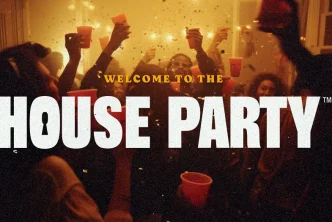The world of cinema has continuously enthralled a legion of audiences with its ability to delve into subjects that transcend time, space and reality. In the long run that followed, films investigating concepts such as individuality, humanity, and self-discovery gained ground. One of the most engaging films to grasp these issues is Destitute Things, a thought-provoking and visually appealing motion picture that digs into the perplexing and regularly unsettling topic of resurrection. At the heart of this investigation is a star cluster: The Cast of Poor Things. Distitute Things cast exhibits not that it held candidly but it offers new experience in the idea of change both physically and mentally.
Rebirth in Poor Things: A Deep Dive into the Themes
The concept of resurrection is central to the story of the destitute. Set in a fantastical world where a young woman is reinvigorated with a modern take on life, the film investigates the complexities of self-identity and the challenges of adapting to a world that has changed drastically. With a story that draws on gothic and surrealist influences, the motion picture challenges conventional thinking about life, its ephemerality and what it really means to begin.
The film’s themes of resurrection and individual transformation are reflected on multiple levels, inviting the audience to reflect on how resurrection can come in myriad forms. For the hero, this handle is both perfect and metaphorical as he reinvents himself from a past that was misplaced. The Cast of Poor Things brings this change to life with depth and emotional complexity, making the film a thought-provoking experience.
Meet the Cast of Poor Things
The Distant Things cast includes some of the most talented performing artists working in Hollywood. Each part brings their particular qualities to the venture, including layers of nuance to the characters they portray. Together, they form a group that elevates the film to a standout piece of cinema.
Emma Stone as Bella Baxter
At the center of Destitute Things is Bella Baxter, a character brought to life by the demonically skilled Emma Stone. Known for his flexibility and flawless running, Stone brings Bella’s complicated journey to the film’s bleeding edge. Bella is a woman who truly comes back to life after her gruesome death, and Emma Stone’s portrayal of the character is nothing short of extraordinary.
Stone imbues Bella’s innocence and eagerness with charm, giving the character a sense of contemplation despite the dire circumstances that surround her. Her chemistry with the rest of The Cast of Poor Things is palpable, and her passionate depth shines through in every scene. Stone’s Bella is both a casualty and a survivor, and through her able execution, the crowd is able to sympathize with a character who has the opportunity to reevaluate herself in a world that is both ordinary and strange.
Willem Dafoe as Dr. Godwin Baxter
Willem Dafoe’s portrayal of Dr. Godwin Baxter, the unconventional and morally ambiguous researcher who brings Bella to life, is a masterclass in complex character work. Dafoe’s execution captures the character’s poise with cold, antagonistic passing and life control. As Dr. Baxter, Dafoe strikes a perfect balance between compassion and heartlessness, making him a fascinating and eccentric figure among the drab Thing cast.
What makes Dafoe’s Execution so compelling is Dr. Baxter’s ability to convey his inner struggle. While the character may appear earnestly respectable on the surface – resurrecting Bella in the belief of giving her a moment at life – the audience slowly realizes that her activities are driven by a darker, more narrow-minded lust. Dafoe’s ability to exemplify both the logical quality and the sinister suggestion of Dr. Baxter’s identity adds to the film’s extraordinary depth.
Mark Ruffalo as Duncan Wedderburn
Mark Ruffalo stars as Duncan Wedderburn, a legal consultant who becomes ensnared in Bella’s quest for individuality and flexibility. Ruffalo is known for his ability to play both dramatic and comedic parts with ease, and his execution in Destitute Things is no exception. Duncan is a charming character who begins as an untouchable in Bella’s world but gradually becomes fundamental to her journey. Ruffalo’s portrayal of Duncan captures the character’s moral ambivalence and his developing relationship with Bella.
Throughout the film, Duncan confronts questions of reliability, morality, and personal change. Ruffalo’s execution is subtle, often combining humor with minutes of deeply passionate reverberation. While hooking Duncan Bella with his demanding character, Ruffalo brings a sense of humanity and powerlessness to the part, which enhances the film with a larger investigation of resurrection and self-discovery.
Jerrod Carmichael as Robert
Jerrod Carmichael’s portrayal of Robert, one of the main characters in Bella’s Journey, adds an energetic layer to the Destitute Things cast. Carmichael is widely known for his particularly comedic timing, but in this piece, he illustrates his amazing ability to delve into more exciting domains. Robert is a character who challenges Bella’s understanding of adoration, freedom, and thereby control over her own destiny. Carmichael’s execution brings a nuance and complexity to Robert’s relationship with Bella, which progresses through the entire film.
Carmichael’s ability to explore the complexities of Robert’s feelings and motivations gives the character depth and realism. Her proximity to the screen complements The Cast of Poor Things’s other figures, combining levity and emotional weight. Through Robert, Carmichael draws a contrast highlighting the tensions between opportunity and limitation that are central to the film’s themes.
Exploring Powerful Performances and Their Impact
The Disstitute Things cast comes together to convey exhibitions that rise above the traditional boundaries of their piece. Each on-screen character usually contributes to the account in important ways, including surfaces and layers in the resurrection investigation. These exhibitions stand as an affirmation of cinema’s control in portraying significant themes such as self-transformation, the fight for freedom and the search for meaning in a changing world.
Rebirth Through Performance
One of the most compelling angles of Distitute Things is how each character experiences a different transformation, mirroring the film’s overarching theme of resurrection. Emma Stone’s Bella is the most drastic example of this change, but her rehash journey is mirrored in the advancing emotional states of the other characters. Dr. Baxter, in turn, experiences his moral rebirth as he wrestles with the consequences of his activities. Duncan’s journey of self-discovery and moral address also contribute to the topical undercurrent of resurrection in the film.
Through their exposition, The Cast of Poor Things captures the essence of what it means to start over, but also the threats and consequences that come with that handle. Whether Bella learns to justify her character, Dr. Baxter grapples with the consequences of God’s play, or Duncan reconciles his sense of guilt and duty, each performer brings a remarkable sense of reality to their character’s turns. These effective performances guarantee that Desperate Things is more than a tale of resurrection—it’s a reflection on who individuals must become when they’re forced to confront their past and make troubling choices.
Emotional Depth and Connection
The passionate depth that the Desperate Things cast brings to their individual parts makes the human interface with the characters on a visceral level a difference. The film’s investigation of resurrection is not a physical transformation but a spiritual one. Each character is grappling with the internal conflict of their demands, and it is through the on-screen performances of the characters that these battles come alive.
Beller Stone’s portrayal, for the occasion, welcomes a gathering of people to empathize with his restlessness and curiosity as he learns to explore a world that feels both ordinary and exotic. Dafoe’s Dr. Baxter, on the other hand, inspires a sense of dread, but a terrifying realization of his fanatical interest in life and fleeting control. All of the film’s performances are imbued with this deep human emotion, making the resurrection story relatable and haunting.
Visuals and Atmosphere Enhancing the Cast’s Performance
While the cast of institute things is undeniably central to the film’s triumph, the film’s visual fashion and air shows play an important role in intensifying the impact. The film’s striking aesthetic—mixing gothic elements with grotesque visuals—creates an otherworldly backdrop that elevates themes of resurrection and change. Hauntingly beautiful cinematography and precise generation planning provide a definitive canvas for the cast’s effective performances.
From haunting, dream-like arrangements to more grounded upbeat minutes, the visuals work hand in hand with the actors’ performances, unlocking the story’s passionate streak. This advantageous relationship between the cast and the visual elements of the film elevates the story to something truly extraordinary.
Conclusion
The Cast of Poor Things features some of the most effective and subtle performances in later cinema. By portraying characters caught on journeys of self-discovery and change, they bring themes of resurrection to life in a way that resonates deeply with human gatherings. From Emma Stone’s nuanced and emotional portrayal of Bella’s revival to Willem Dafoe’s chilling portrayal of Dr. Baxter, Destitute Things’ performances stand as a testament to incredible acting control in investigating complex and important subjects. These performing artists not only bring the characters to life, but offer help bringing forward the often difficult-to-handle investigation of human individuality, freedom, and re-examination.
Read More latest Posts
 Written by
John Smith
Written by
John Smith





